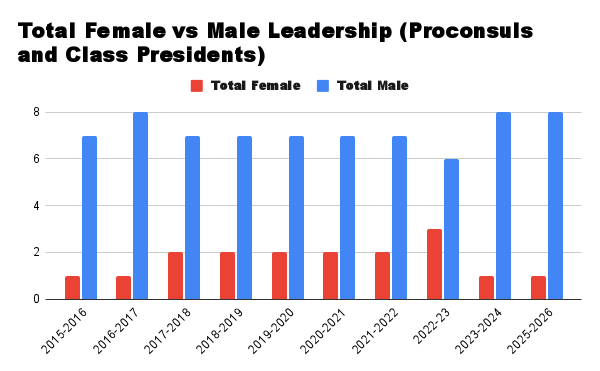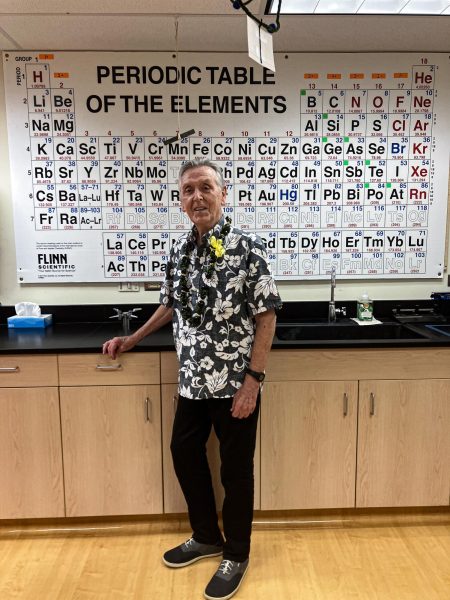The Recent Rise of Antisemitism in America

On Oct. 27, 2018, a user on the right-wing messaging and social media platform Gab posted an unhinged tirade directed at The Hebrew Immigrant Aid Society, a Jewish American nonprofit serving immigrants and refugees. The message ended with the promise, “Screw your optics, I’m going in.” Only an hour later, the man, identified as Robbert Gregory Bowers, stormed the nearby Tree of Life Pittsburgh synagogue. Eleven people were killed and six injured, including several Holocaust survivors.
This massacre wasn’t spontaneous; it followed years of contact with alt right, white nationalist, and antisemitic groups by its perpetrator. What began as a dive into antisemitic and alt right conspiracy theories quickly escalated into hatred infused violence. When celebrities, such as Ye (Kanye West), echo antisemitic conspiracy theories, it lends them credence. The more these theories circulate, the more difficult it is to prevent people like Bowers from committing violence against Jewish people.
By the time I entered middle school, I had encountered antisemitism. Hurtful words, repetitions of ignorant stereotypes, small things. I was twelve years old though, when I first felt unsafe being a Jew. I had been warned ahead of time they would be there. The boy whose bar mitzvah I was attending told us about the protesters who had come to his synagogue every Saturday morning for nearly two decades, holding signs brandishing messages such as “Jewish Power Corrupts.” Still, nothing could have prepared me for the way they stood there, just staring us down, as my friends and I walked into the synagogue. Although they made no move to attack us, an uneasy feeling gripped me. Never had I looked into the eyes of someone who I knew hated me with every fiber of their being. Almost exactly a year earlier, a gunman had walked into a synagogue in Pittsburgh, perpetrating the deadliest attack on the Jewish community in the United States in years. This fact, and the reminder of all the relatives my family had lost to the Holocaust, led to me being on edge the whole time I was in the synagogue.
Antisemitism is defined as hostility, hatred, or prejudice against Jewish people. It is one of the oldest forms of hatred, with elaborate conspiracies dating back millenia. Throughout history, common antisemitic tropes have accused Jews of controlling the banks, the media, and actively planning global domination.
Dietz Bering of the University of Cologne described the antisemite’s thought process saying, “[to antisemites] Jews are seen not as individuals but as a collective. Anti Semites believe Jews are essentially alien in surrounding societies and Jews bring disaster on their ‘host societies’ or on the whole world.” Although to a rational thinker these conspiracies may seem ridiculous and far fetched, antisemitism and antisemitic hate crimes have been on the rise.
While antisemitism is typically thought of as something only present in far right-wing fringe spaces, it has crept its way into mainstream society. A recent example of this are comments by the famous rapper and songwriter Ye, formerly Kanye West. Ye made multiple antisemitic comments throughout the month of October, criticizing the so-called “Jewish underground media mafia,” and claiming he was “#MeToo-ing the Jewish culture,” stating “Y’all gotta stand up and admit to what you been doing.” These comments culminated in a tweet saying, “I’m going death con three On JEWISH PEOPLE ” (Referring to the third level of the United States Armed Forces DEFCON alert system). Ye has a Twitter following of around 32 million, over double the global Jewish population of 14.8 million. Ye’s following risks exposing large numbers of people to once fringe antisemitic beliefs.
Although there aren’t many Jews at ‘Iolani or in Hawai‘i, it is important for people of all faiths and backgrounds to stand up to antisemitism. At ‘Iolani, a majority of students are Asian, and it’s easy to see parallels between anti-Asian hate and antisemitism. Old antisemitic tropes such as accusations of a Jewish lead global conspiracy, allegations that Jews spread disease, and that American Jews hold a secret allegiance to Israel bear striking resemblance to elements of anti-Asian doctrine such as the Yellow Peril or Perpetual Foreigner Syndrome. Mx. Adrian Khactu, teacher of Race and Social Justice Literature at ‘Iolani, claims that both antisemitism and anti-Asian hatred stem from “this need to find another foreigner to expel, to punish.”
Mx. Khactu said “Throughout history, Jewish people have been seen as scapegoats, and I see something very similar happening here. Asian Americans, because of anti-chinese rhetoric are seen as scapegoats, a way for us to blame not the government or anyone else, but the need to blame someone. And I feel that antisemitism now in 2022, 2023 is about people looking for scapegoats and blaming other people unfairly.”
These parallels are not coincidental and show just how easily hatred for one minority group can be mirrored onto hatred for another. Antisemitism may appear to be a Jewish problem, but Antisemitism is a societal problem that requires a wide coalition of different people from different backgrounds to solve.

Hi, my name is Sophie, and I am Imua’s Photo and Design Editor. This is my second year at Imua and my third year at ‘Iolani. I decided to join Imua...

Hi, I’m Jude and I’m the Senior Editor-at-Large for Iolani’s Imua publication. I’ve been at Imua since my Freshman year, meaning that I’ve been...









